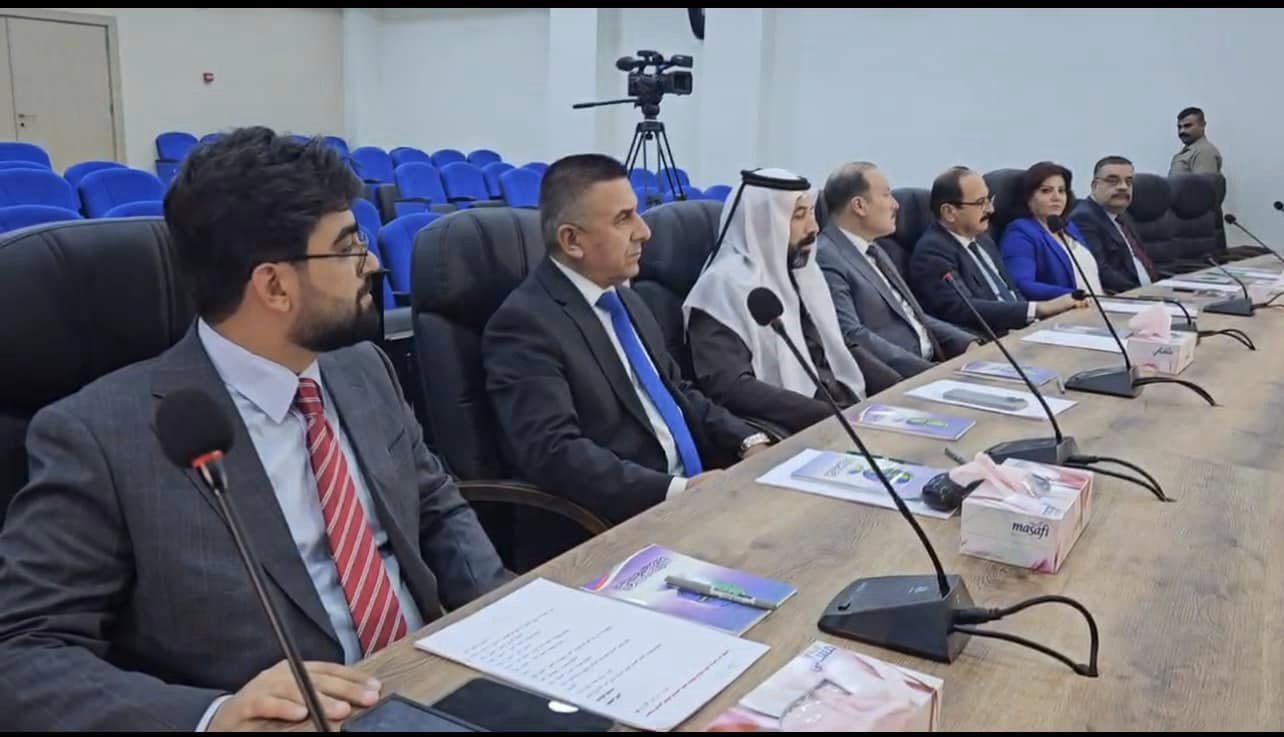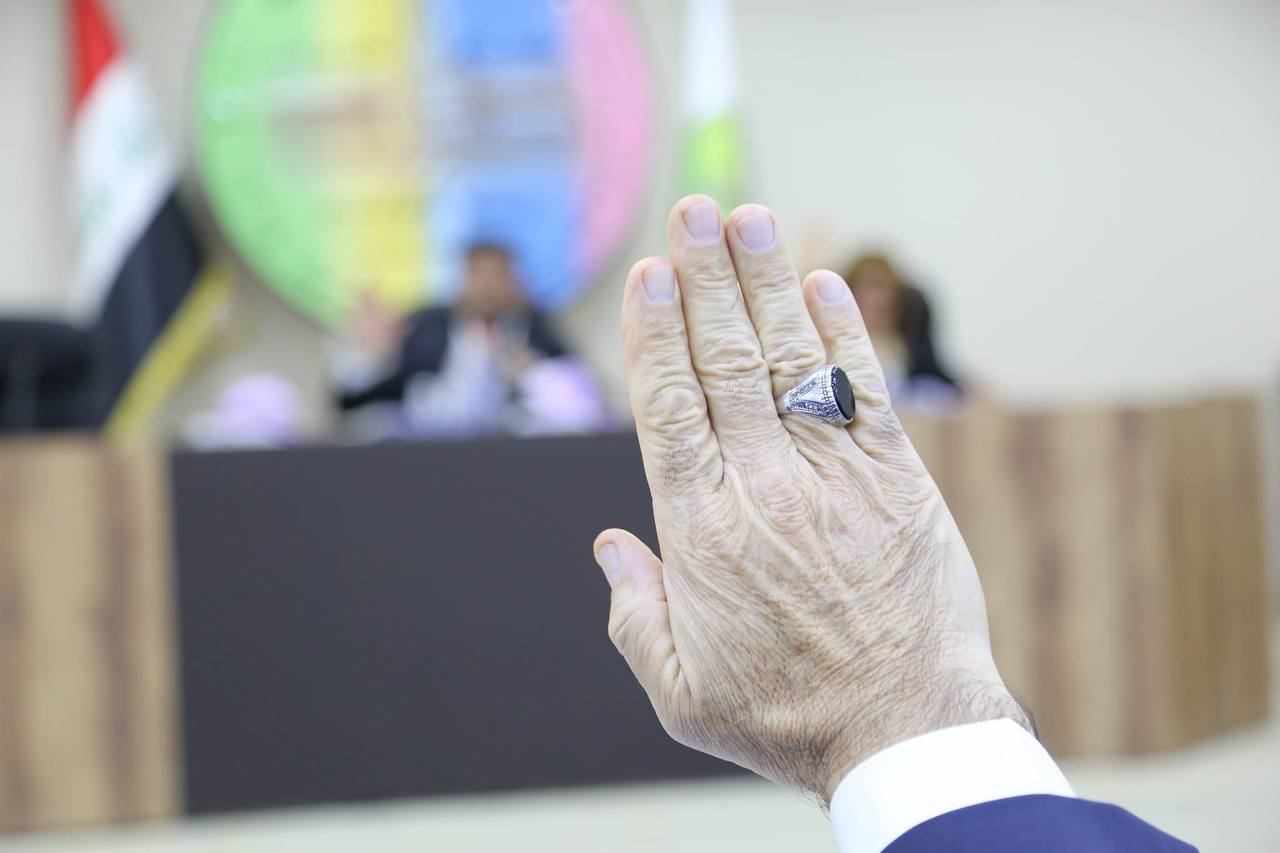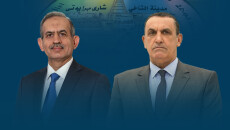The Kirkuk provincial council has elected three new mayors from the Arab community and determined the standing committees.
On Monday morning, October 14, 2024, there were several meetings in the members' room and the council speaker. At 5 pm (Baghdad local time), a session was held chaired by Mohammed Hafez, the council speaker, and attended by nine members - three Arabs, two Turkmen, and two members of the Patriotic Union of Kurdistan PUK.
During the fifth session of the council, which lasted two hours and was attended by a KirkukNow reporter, the bylaws were approved, and the first deputy governor was elected from the Turkmen ethnicity which is boycotting the provincial council.
However, before the nomination, the Iraqi Turkmen Front ITF, rejected the appointment of the deputy governor of Kirkuk in a statement emphasizing the boycott of the sessions of the Kirkuk provincial council.
Three mayors were elected from the Arab community: Sirajuddin Nazim Aasi Obeidi for the Daquq district, Adel Mohammed Jawadi for the Dubiz district, and Saadoun Ahmad Qasim for the Hawija district. Up to the present, the mayor of Kirkuk center was not determined due to the lack of a candidate.
Kirkuk consists of four districts, with the acting governor of the central district currently being a Turkmen. The Kurds are the only community without any mayor post.
The head of the Arab coalition in Kirkuk, previous acting governor from 2017 to 2023, and the president of ITF have lodged complaints against nine members of the council representing various blocs, including Rebwar Taha, governor of Kirkuk and Muhammad Al-Hafez, provincial council speaker, with the Federal Supreme Court on behalf of the Arab and Turkmen components against the August 10 session in Baghdad that led to the formation of the Kirkuk local administration.
The opposition front in the council, consisting of the Arab coalition, the ITF, and the Kurdistan Democratic Party KDP bloc, deemed the Rashid Hotel session illegal.
The northern, oil-rich, ethnically mixed province of Kirkuk is home to about 1,77 million Kurds, Turkmen, and Arabs. Located 238 kilometers north of Baghdad, Kirkuk is an ethnically mixed province and has long been at the center of disputes between the federal government in Baghdad and the Kurdistan Regional Government KRG.

Kirkuk provincial council meeting, Kirkuk, October 14, 2024. KirkukNow
Al-Hafez stated in a news conference following the session that the posts of mayors would be rotated and given to the Kurds, especially in Dubiz and Daquq. He expressed hope that the Turkmen Front could regain their rights in court.
The Kirkuk government was formed several months ago through an agreement between the PUK, some Arabs, several Shiite Turkmen parties outside the provincial council, and the Christians.
The agreement stipulated that senior positions, including the governor and council speaker, would be exchanged between the Kurdish and Arab communities.
The State Council, an independent body responsible for interpreting and analyzing legal texts, clarified that the provincial council has the authority to replace and appoint district mayors and sub-district directors due to the absence of district councils. According to the provincial labor law, the appointment of the heads of administrative units after their election requires the approval of the governor.
In the session, the chairman and members of 14 standing committees were elected. Zahir Anwar Aasi leads the Oil and Energy Committee, Parwin Fatih the Education Committee, Raad Salih the Finance Committee, Hoshyar Hijran the Projects Committee, Nashat Shahwez the Security and Defense Committee, Ahmad Kirkuki the General Services Committee, Hoshyar Hijran the Health Committee, Abdullah Mirwais the Article 140 Committee, Raad Salih the Balance Committee, and Angel Zia the Integrity Committee.
"The invitation has been extended to all members of the provincial council, including those who have boycotted from the Arab, Turkmen, and Kurdish faction of the Kurdistan Democratic Party (KDP), to play their real role in the council as participants in power and opposition," council speaker told KirkukNow in an exclusive interview ahead of the session.
However, the Arab coalition and the Sovereignty Party, which boycotted the council, warned in a statement that holding the council meeting without their participation would undermine peaceful social coexistence.
The Turkmen Front and the Arab Coalition have filed two separate complaints in the Federal Court against the formation of the Kirkuk government held in Baghdad, demanding the annulment of the results.
Al-Hafez stated in a news conference after the council meeting, attended by KirkukNow reporter, that the council warns those members who do not attend the next sessions, referring to the boycott front of Arabs, Kurds, and Turkmen.
According to provincial law, any council member who misses four consecutive meetings or one-fourth of the council meetings in four months without a fair excuse is considered resigned.
The 16-member Kirkuk provincial council, divided into two opposing fronts - nine government versus seven protesters, has yet to decide on most of the administrative posts in the province.
Previously, during the Ba'ath regime, most of the main nodes of Kirkuk local administration were in the hands of the Arab community. In 2017, the governor's post was restored for the Arabs up to December 2023 provincial council elections, where once again, a Kurdish candidate from the PUK faction won the post last August.
*This story has been produced as part of the 'Budget is Your Right' initiative, with support from the National Democratic Institute (NDI).






